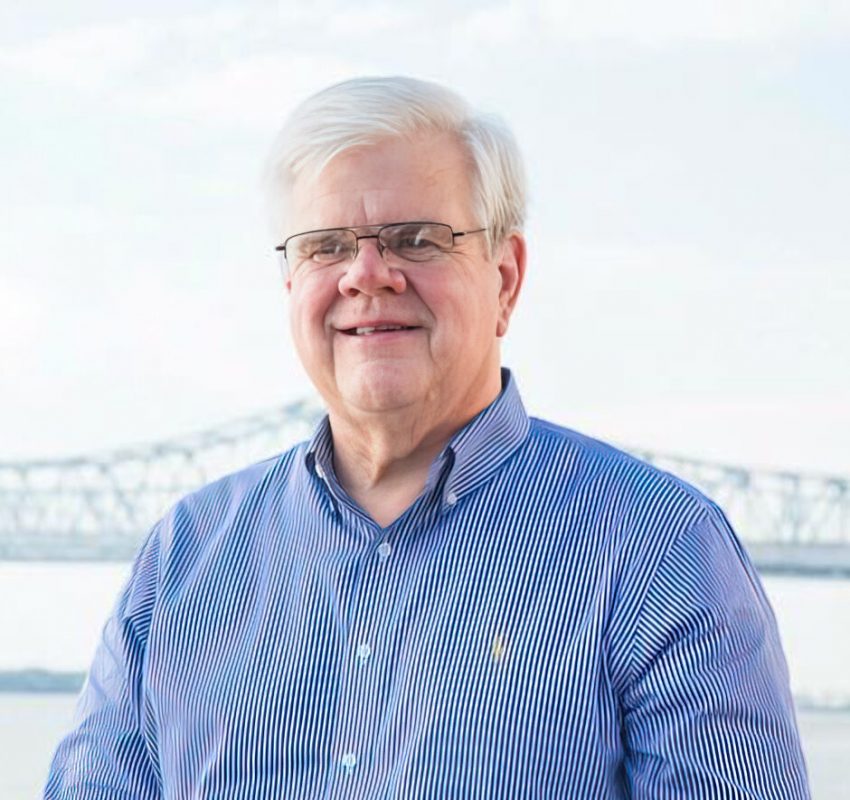We believe ratepayers deserve more.
After decades of the status quo, Louisiana Public Service Commissioners (PSC) are working on modernizing the state’s electricity market rules to benefit consumers, increase transparency in utility filings, and hold utility providers more accountable. They want to make sure you get fair prices for your energy and strengthen our state’s economy.
Louisiana is at a turning point
The Public Service Commission is deciding whether to close the Customer Centered Options (CCO) docket, which is an initiative created to explore free market solutions for adding more affordable, reliable energy to the grid that would save all consumers money.
The stakes are high. One of the state’s large monopoly utilities is pushing to end the debate and move forward with billions of dollars in gas-fired power plant construction. These costs will ultimately fall on Louisiana families and small businesses.
But large industrial companies are calling for the freedom to seek their own lower-cost, clean energy options, including renewables and cogeneration, that keep those costs off of other customers’ bills. Amplify Louisiana stands with those calling for free market principles, innovation, and transparency. We thank the Commissioners for keeping utility customers at the forefront of their decision-making and moving forward with an evaluation of free market solutions that would lower costs for All customers.

Did you know?
The PSC is actively exploring opportunities to leverage private sector investments to maintain low electricity costs, empowering Louisiana’s oil and gas industry to drive innovation and growth while protecting working families from the financial strain of high utility rates.
They are also working to fortify Louisiana’s energy infrastructure against future calamities while safeguarding customers from exorbitant rate increases – setting the stage for a more dynamic, competitive, and environmentally sustainable energy sector.
Meet Your Louisiana Public Commissioners (PSC)

Eric Skrmetta
LPSC Commissioner District 1

Jean-Paul P. Coussan
LPSC Commissioner District 2

Davante Lewis
LPSC Commissioner District 3

Mike Francis
LPSC Commissioner District 4

Foster L. Campbell
LPSC Commissioner District 5
WHY NOW?
Because Costs are going UP.
The Commission’s commitment to conduct a full and robust 3-phase evaluation of Louisiana’s Electricity Market rules – the first in over 20 years – is exactly what Louisiana needs at this moment. Louisiana’s largest utilities have made clear their intent to spend billions building new power plants. Those billions would cause an increase to customers’ bills.
The Commission started a three-part study to find out if there are smarter and more affordable ways to make sure people in Louisiana can get reliable, reasonably priced electricity. They’re looking at this without any fixed answers in mind, and they’re considering all the questions.
We applaud the Commission’s dedication to finding the best solutions for utility customers in Louisiana.
The PSC is working to safeguard the interests of Louisiana’s utility customers. Here is the 3-phase plan:
phase 1
The PSC is reviewing its existing rules about what information utility companies need to share in their public reports. They’re also looking at how these companies compare the costs of different resources before asking the Commission to review their decisions. Right now, monopoly utility companies in our state don’t have to consider all available options, and this can impact your bills. The PSC wants to make their processes more up-to-date and transparent, so they have more information and more choices.
The PSC is exploring options that could give you, the customer, the chance to get paid for using less electricity. For example, if electricity is expensive at a certain time of day, they might pay you to turn up your air conditioner or turn off your pool pump. These types of changes empower customers and introduce the concept of customer choice into our current system.
Louisiana’s largest utility companies want to add a significant amount of renewable energy, over 5000 MW, to their portfolio. The costs to build those renewable energy power plants would result in base rate increases for ALL customers.
The PSC is contemplating the possibility of allowing large industrial employers and private companies to fund the creation of new renewable energy projects. This means these private companies, not individual residents or small businesses, would have to provide the financial resources and take on all the associated risks for this new development. The benefit of this approach is that all customers would enjoy the advantages of adding renewable energy to the power grid, and it would decrease the necessity for utilities to raise rates to finance the development of renewable generation.
future phase 2
The PSC is seeking ways to make Louisiana’s energy generation more efficient, cost-effective, environmentally friendly and reliable. In Phase 2, the PSC will consider potential changes to its Electricity Market rules to encourage the growth of Cogeneration projects and remove any obstacles.
We know that our major utility companies have plans to spend a lot of money on building new power plants. If they do that, it would mean higher rates for everyone. But if private companies invest in projects like cogeneration or buy power from sources that aren’t owned by the utilities, it could reduce the need for the big utilities to spend so much money on new power plants. That would be a good thing for all customers.
Cogeneration is the name given to combined heat and power (CHP) energy technology. CHP is an energy technology that delivers economic, environmental, and reliability benefits by recovering and using waste heat from on-site electricity production to produce additional generation. As a result of capturing and using heat that would otherwise be wasted from the generation of electricity, CHP projects need less fuel to produce the same amount of energy, which translates into less expensive energy and environmental benefits.
In simpler terms: Cogeneration is like a two-for-one deal in
energy technology. It’s a way to create electricity, and at the same time, it makes good use of the extra heat that usually goes to waste. This means you get more energy from the same amount of fuel, which makes it cheaper and better for the environment.
future phase 3
In Phase 3, the PSC will explore the pros and cons of creating a Regulated Competitive market for energy customers. In a Regulated Competitive market, customers have the ability to choose their power provider. Power providers would have to compete for customers and customers would have the ability to choose their power supplier based on whatever is most important to them– different pricing plans, renewable energy offerings, customer service and more.
It is important to note that Phase 3 is NOT about deregulation– deregulation does NOT exist in the energy market. Phase 3 is about evaluating the costs and benefits of Louisiana moving to a Regulated Competitive system that empowers customers to choose their power provider. The Commission’s Rules and Regulations would govern the competitive landscape.
GET INVOLVED
After decades of the status quo, Louisiana’s energy monopoly system is outdated and too restrictive. If you believe ratepayers, like you, deserve more control over their electricity spending and how their power is generated, sign up to stay informed on how you can get involved.
WHO WE ARE
Amplify Louisiana, a 501(c)(4) organization, represents four major electric companies dedicated to advancing Louisiana’s energy landscape. Our mission is to work with the Public Service Commission to help identify solutions in order to provide more affordable electricity options, enhance the grid’s resilience, and support industrial customers while safeguarding residential consumers. We strive to hold monopoly utilities accountable and prevent rising electricity costs, ensuring a brighter, more sustainable future for all Louisiana residents.

A Fortune 200 company headquartered in Baltimore, Maryland, Constellation Energy Corporation (Nasdaq: CEG) is the nation’s largest producer of clean, carbon-free energy and a leading supplier of energy products and services to businesses, homes, community aggregations and public sector customers across the continental U.S., including three fourths of Fortune 100 companies. With annual output that is nearly 90% carbon-free, Constellation’s hydro, wind and solar facilities paired with the nation’s largest nuclear fleet have the generating capacity to power the equivalent of 16 million homes, providing about 10% of the nation’s clean energy. Constellation is further accelerating the nation’s transition to a carbon-free future by helping its customers reach their sustainability goals by setting an ambitious goal of achieving 100% carbon-free generation by 2040, and by investing in promising emerging technologies to eliminate carbon emissions across all sectors of the economy.

NRG Energy is a Fortune 500 company operating in the United States and Canada. NRG delivers innovative solutions that help people, organizations, and businesses achieve their goals while also advocating for competitive energy markets and customer choice.
The company serves over 7.5 million customers providing residential, commercial and industrial power solutions, supported by approximately 13 GW of generation as of March 31, 2024.
NRG has approximately 15,000 employees and was named one of “America’s Most Responsible Companies,” by Newsweek in 2023.

Calpine Corporation is America’s largest generator of electricity from natural gas and geothermal resources with commercial, industrial and residential retail operations in key competitive power markets. Calpine has 78 power plants in operation and serves customers in 22 states, Canada and Mexico. Calpine’s fleet has the capacity to generate nearly 26,000 megawatts of electricity – enough to power approximately 20 million homes.

Vistra is a leading Fortune 500 integrated retail electricity and power generation company that provides essential resources to customers, businesses, and communities from California to Maine. Based in Irving, Texas, Vistra is a leader in energy transformation with an unyielding focus on reliability, affordability, and sustainability. The company safely operates a reliable, efficient, power generation fleet of natural gas, nuclear, coal, solar, and battery energy storage facilities while taking an innovative, customer-centric approach to its retail business.